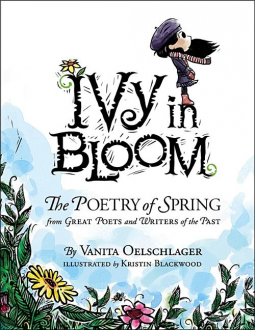
Queen Victoria and the Bonapartes
by Theo Aronson
This title was previously available on NetGalley and is now archived.
Send NetGalley books directly to your Kindle or Kindle app
1
To read on a Kindle or Kindle app, please add kindle@netgalley.com as an approved email address to receive files in your Amazon account. Click here for step-by-step instructions.
2
Also find your Kindle email address within your Amazon account, and enter it here.
Pub Date 21 Sep 2017 | Archive Date 03 Feb 2018
Description
"What do you say to the wonderful proceedings in Paris, which really seem like a story in a book or a play?" wrote Queen Victoria to her uncle, King Leopold of the Belgians, in December 1851. Prince Louis Napoleon Bonaparte, nephew of the great Napoleon Bonaparte, had made himself dictator of France, stealing the limelight of the European stage to open the first act of a play that would last for more than thirty years—and in which Queen Victoria was herself to play a major role. Into the Queen's staid, predictable and circumscribed life, the Second Empire Bonapartes brought a breath of another world. Adventurers, parvenus, exotics, they radiated an aura of romanticism to which Victoria's ardent nature was quick to respond.
Napoleon III, as he now styled himself, soon conquered where his uncle had failed: England, in the person of her Queen, was completely bowled over by his quiet charm and buccaneer looks. And his wife, the flamboyant Empress Eugenie, was able no less easily to overcome her less than immaculate origins and find a place in Victoria's heart.
But in the second act came disenchantment: Napoleon's Italian war disgusted his former ally, and its end brought little improvement in the relations between the two countries. The Queen and her ministers suspected that Napoleon's former intention of avenging Waterloo had only lain dormant, and not died away. The Franco-Prussian war, however, brought a dramatic turn of fortune's wheel: in six short weeks the Empire had fallen and Napoleon had surrendered at the battle of Sedan.
The Empress Eugenie fled to England, where her friendship with Victoria was renewed and deepened. She found exile almost unbearable, fretting like a beautiful bird with its wings clipped. One by one her avenues of escape were closed. Her husband died on the eve of his planned "Return from Elba" and a few years later their only child, the Prince Imperial, was killed at the age of twenty-three fighting in the British Army in the Zulu War.
In the long twilight of the fourth act of the tragedy, the friendship between Victoria and Eugenie developed until the Empress became almost an honorary member of the British Royal Family. The Queen's unwavering championship of the dethroned, exiled and bereaved Eugenie revealed her at her most admirable: compassionate, practical, loyal, and stubborn in her determination to put persons before politics. Eugenie herself lived to see the defeat at Sedan avenged by the Allied victory of 1918; "it allows me to die," she said, "with my head held high, in peace with France".
Theo Aronson's account of the remarkable friendship between the Royal Houses of Britain and France contains several hitherto unpublished entries from Queen Victoria's journals and throws new light on her domestic and personal life. Set against the contrasting backgrounds of lavish, theatrical Second Empire Paris and the ice-cold courts of Windsor and Balmoral, Queen Victoria and the Bonapartes forms a magnificent companion volume to Mr. Aronson's earlier books on the European royal families of the nineteenth century, which have deservedly proved so popular.
Available Editions
| EDITION | Paperback |
| ISBN | 9781910198025 |
| PRICE | $16.99 (USD) |
Links
Featured Reviews
 sarah m, Reviewer
sarah m, Reviewer
This is a brilliantly written and very easy to read book, with a wonderfully flowing narrative.
It is the first Aronson book I have read, but will definitely be reading more of his books in the future if this one is anything to go by. Without wishing to give away the story it is about Queen Victoria’s relationship with the French Imperial family, especially Napoleon III and Empress Eugenie. It shows how the close friendship built up over time between Victoria and Empress Eugenie, especially after her beloved Albert had died. I really liked the character of Empress Eugenie, she became three dimensional. It is clear how much historical research Aronson carried out before writing this book and his clear use of first-hand accounts from the Royal Archives to piece together the story.
Definitely worth reading.
 DR P, Reviewer
DR P, Reviewer
A very interesting subject, with more detail than I had hitherto been aware of. (eg the Empress Eugenie's brother-in-law...)
An eminently readable style, striking just the right balance between being a dry history, & an over-friendly, too-intimate account. The reader feels one gets to know the Queen & the Empress far better than the more usual history books, in large part through their own words & those of other contemporary witnesses.
The author's own opinions do not intrude, as has become the style of some of today's writers.
I enjoyed reading this book very much indeed, & would most certainly recommend it to those seeking a more human experience of history.
 Shawn D, Educator
Shawn D, Educator
Theo Aronson's latest work, Queen Victoria and the Bonapartes, explores the personal relationships between Queen Victoria, Emperor Napoleon III and Empress Eugenie of France. It opens a wide window on a colourful and somewhat surprising series of encounters between monarchs that influenced relations and perceptions of each other in the eyes of the public. The Second Empire re-established Napoleonic aspirations in France and rekindled a sense of glory and elan superbly captured by Aronson. The revanchist ideals of the Bonapartist dynasty represented all that the British royal family should have been threatened by, yet a lasting (although sometimes fraught) personal relationship was established that influenced Anglo-French political relationships.
Relying primarily on correspondence between the Queen, Empress, Emperor and other family members and officials - much of it previously unpublished, Aronson delivers another superbly readable and engaging history. Uniquely capturing the emotional, familial and personal relationships, it sets them within the larger context of the times and explores some of the wider public implications of these intimate exchanges.
Like the author's previous works, the results are eminently readable and adeptly draw from a wide variety of sources, tying them together in a well-paced narrative. Generally well-balanced in the treatment of the personages concerned, special attention is paid to the relationship between the two Empresses. Both revealing and thoughtfully considered it sheds new light on a relationship that was equally significant to each and rather unique in history. Both monarchs experienced early grief in their lives and together supported one another through challenges, and dealing with that grief in unique and different ways.
This remains a biography of relationships of a more personal nature and limits discussion of the greater political implications of these monarchical machinations. On the occasion of French involvement in the Crimean War, Aronson addresses the influence of Victoria over the Emperor and attempts to dissuade him from personal involvement. However, one remains curious of the wider influence of triangle of influence between Victoria, Albert, her daughters and German-French-English relations and details of French national and political reaction to the continuing close relationship between the English monarchy and the deposed Bonaparates.
I was particularly struck and impressed by Aronson's interpretation of the appeal to Victoria of the charming Emperor and the elegant Empress and the impact they had on her. This forms a significant part of this work and is deftly handled.
In all this is another superb contribution by Theo Aronson to a gap in the scholarship worthy of exploration. It is readable and highly recommended.
 Emily R, Reviewer
Emily R, Reviewer
This was incredibly informative and fascinating. I loved the writing style, and the way it flowed so smoothly.
While it concerns Victoria’s relationship with the Bonapartes, I actually really liked how it showed Albert’s relationships with them as well, and how Victoria and Albert differed between their opinions of both politics and of the Bonapartes.
I found Victoria’s relationship with Empress Eugenie more interesting than her relationship with Napoleon. There was such a disparity between them regarding appearances, manner, bearing and leadership styles, that it’s hard to imagine the two women actually being friends, but Aronson managed to create this vivid portrayal and understanding show from between them.
It was a well researched, well written book, that was incredibly enjoyable.
Readers who liked this book also liked:
Charles Dickens, Crystal S. Chan, Nokman Poon
Comics, Graphic Novels, Manga, Teens & YA




























